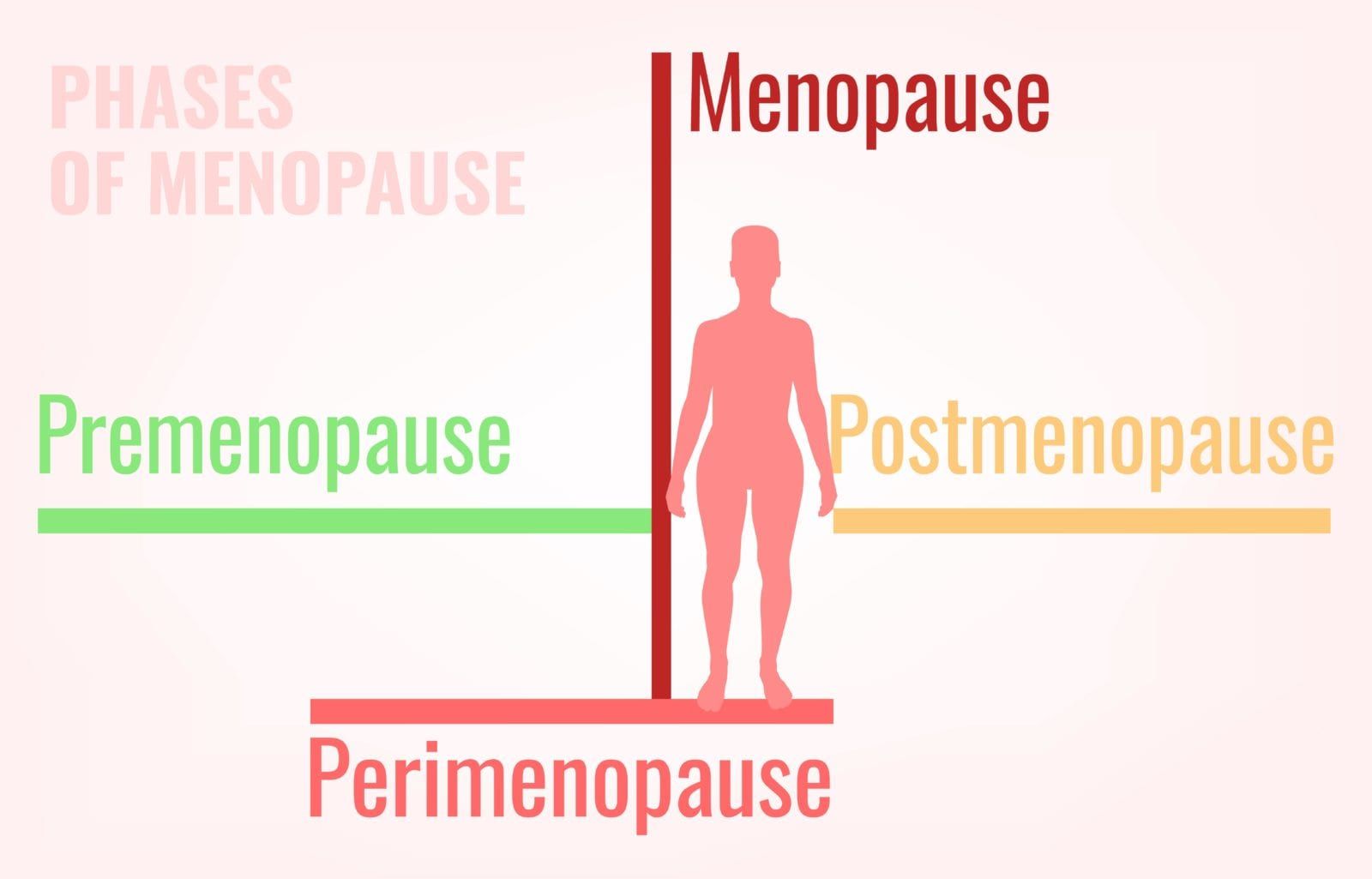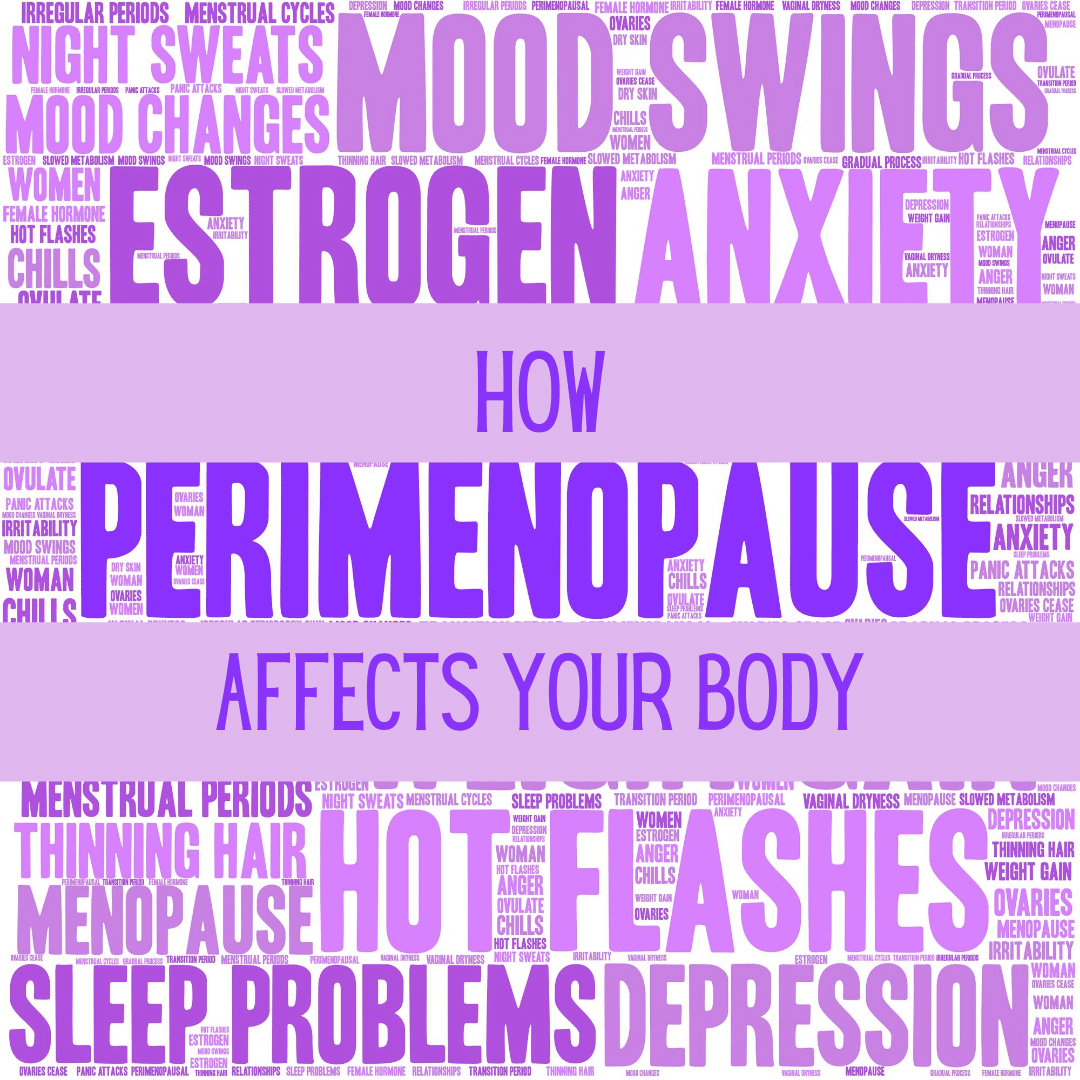Anytime your period changes, you may wonder what caused it to change. There are a number of things that can alter your monthly periods. Some of these things include exercise, diet, weight, and birth control. However, age is another important factor that can cause changes in your period. In fact, if you are in your mid to late 40s, changes in your period can indicate perimenopause.

Perimenopause is the transition from menstruation to menopause. Most women will experience perimenopause in their mid to late 40s, however it can occur earlier in some women. This transitional stage generally lasts for about 4 years before your period will stop completely. Once your period has completely stopped (no bleeding or spotting), your body will transition from perimenopause to menopause over the course of 12 months.
During perimenopause, also known as “the change”, less estrogen is produced by the ovaries. Decreased estrogen levels will cause changes in your period and body such as:
Irregularity
Throughout your menstrual cycle, progesterone and estrogen levels fluctuate in a cyclic, consistent manner. This is what keeps your periods occurring regularly. However, during perimenopause, your hormone levels fluctuate erratically, which results in irregular periods. Depending on how the hormones fluctuate, you may experience more or less periods than usual. In some cases, this means getting two periods back to back, while in other cases it can mean skipping a period one month.
Bleeding
The way you bleed can also change during perimenopause. Some women experience extremely heavy bleeding that causes them to soak through pads. Other women have bleeding that is so light, they have a hard time determining if it is a period.
Sexual Function
As estrogen levels decrease, it is also normal to experience some changes in sexual function. For starters, your sexual arousal and desire may change. Additionally, decreased estrogen levels can decrease natural lubrication and elasticity, which can make sexual intercourse uncomfortable.
Sleep Problems

Perimenopause can also interrupt your normal sleeping patterns. Some women experience sleep interruptions in the form of hot flashes or night sweats, while others simply have trouble sleeping. Oftentimes, a lack of sleep can lead to other problems such as mood swings and irritability. It can also increase the risk of depression.
Health Problems
In addition to affecting your periods, the decreasing estrogen levels associated with perimenopause can also affect your overall health. Specifically, lower estrogen levels cause the body to lose bone faster than it produces it, leading to osteoporosis. Decreasing estrogen levels also leads to changes in blood cholesterol levels that can increase the risk of heart disease.
If you have been experiencing changes with your period, you will want to schedule an appointment with your gynecologist to determine if perimenopause is the cause. Your gynecologist will examine you to rule out other causes of your symptoms and make an accurate diagnosis. In some cases if your symptoms are severe enough to affect your daily life and well being, your gynecologist can also recommend certain treatments to help alleviate the severity of your symptoms.

Dr. Gurdian is Board Certified in Obstetrics and Gynecology and is an active member of the American College of Obstetrics and Gynecology and the North American Menopause Society. She is currently on staff at the Adventist HealthCare Shady Grove Medical Center’s (SGMC). Dr Gurdian has a particular interest in high risk OB, menopause and complex health care issues.


